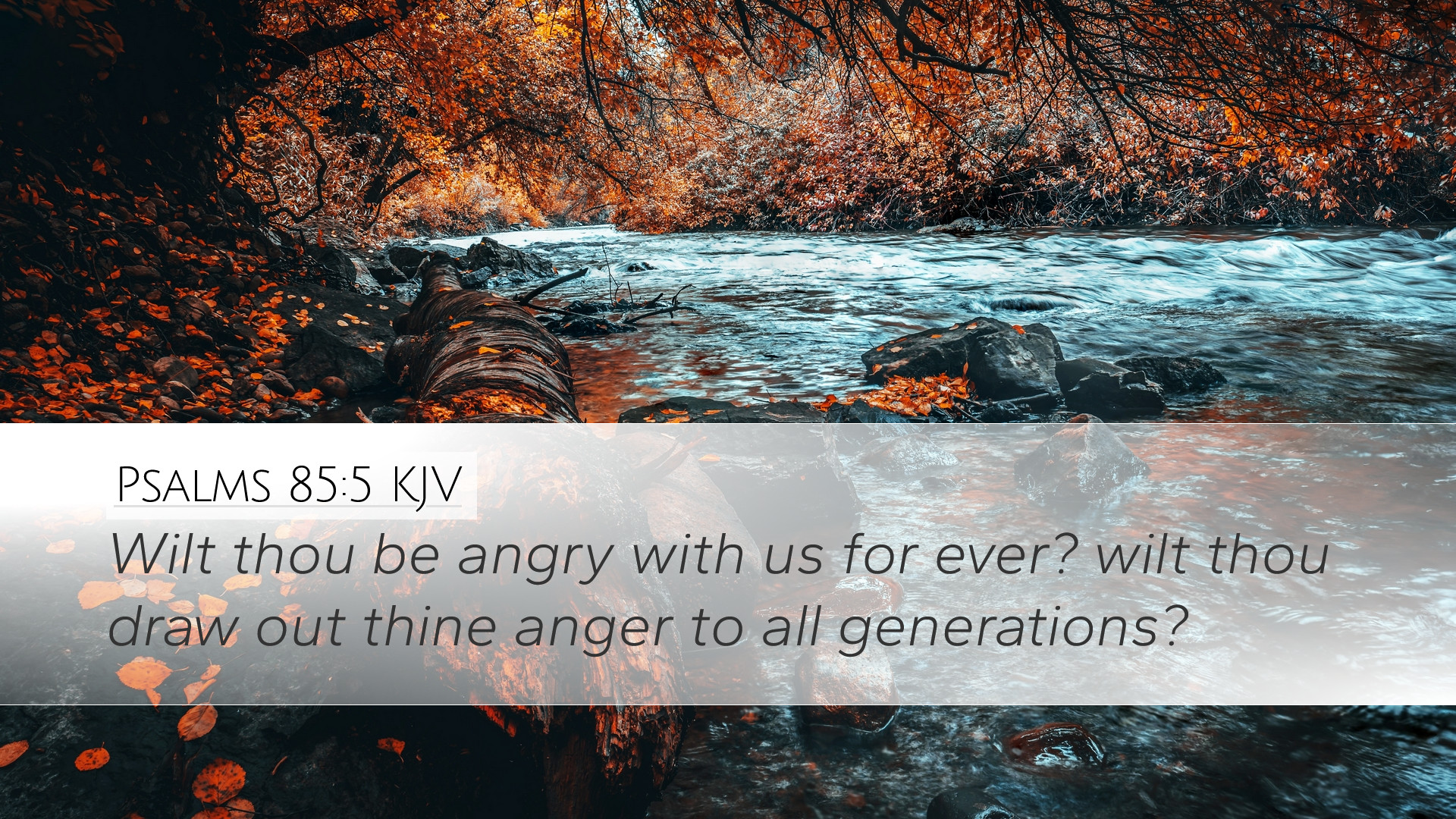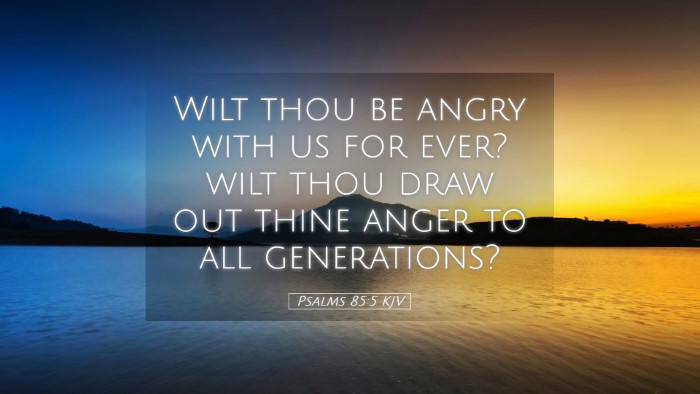Psalm 85:5 Commentary
Verse:
"Will you be angry with us forever? Will you prolong your anger through all generations?" (Psalm 85:5)
Contextual Background
This psalm is a communal lament, addressing God in a reflective tone regarding the state of Israel and its longing for divine restoration. It is generally recognized as a plea for reconciliation after a period of discipline and suffering, possibly following the Babylonian exile. Understanding the historical context is essential for grasping the depth of emotions expressed in this cry for mercy.
Theological Themes
-
The Nature of God's Anger:
In this verse, the poet articulates a profound concern about the duration and intensity of divine displeasure. Matthew Henry notes that God's anger is often a response to human sin, suggesting that while God is just in His wrath, His mercy ultimately prevails. The prolonged anger signifies a separation that the psalmist yearns to end, thus hinting at God's covenant nature.
-
Generational Consequences:
Albert Barnes emphasizes the implications of God's anger on future generations. The psalmist's question implies a concern not just for the present but for the descendants of Israel who inherit this divine displeasure. This idea resonates through biblical theology, where sin has ramifications beyond the individual, influencing communities and nations.
-
The Desire for Restoration:
The urgency in the plea encapsulated in this verse leads to the core theme of restoration. Adam Clarke highlights the intimacy of the cry, showcasing a deep-seated understanding of the need for God’s mercy to break the cycle of anguish. This reflects the heart of the psalmist—a desire for renewed relationship and harmony with God.
Exegesis of Key Phrases
"Will you be angry with us forever?" This rhetorical question captures the essence of human desperation. The psalmist shows an acute awareness of the transient nature of human existence against the backdrop of God’s eternal nature. The use of "forever" underscores the fear of total and lasting separation from God’s grace.
"Will you prolong your anger through all generations?" Here, the use of the term "prolong" indicates not just the duration but also an underlying hope for divine mercy. Henry interprets this as a recognition of God’s ability to both punish and restore. The inquiry about “all generations” suggests an understanding that the community’s plight is ultimately tied to their collective fidelity to God.
Biblical Cross-References
-
Exodus 34:6-7:
These verses reveal God's nature, highlighting mercy alongside justice. They frame the concept of divine anger as part of a larger narrative of grace and forgiveness.
-
Lamentations 3:22-23:
This lament echoes similar themes of hope amidst despair, emphasizing God's mercies that are new each morning, painting the broader context of divine compassion over judgement.
Practical Applications
For pastors, the themes embedded in Psalm 85:5 can be pivotal for sermons addressing communal repentance and the quest for revival in the church. It prompts reflection on the relationship between sin, divine anger, and the tangible consequences that it bears on the community.
Students and scholars might explore the richness of lament in the biblical tradition and its relevance. The tension between divine justice and mercy reflected in this verse can provoke discussions on how contemporary believers perceive God's anger and grace in light of their experiences with sin.
Theologians can engage with this psalm in deeper inquiries of God's nature. The acknowledgment of divine anger does not negate hope; rather, it frames a robust theological dialogue on restoration, redemption, and the timeless truth that God’s mercy is unfathomably greater than His anger.
Conclusion
Psalm 85:5 encapsulates a yearning for divine mercy amidst the reality of divine displeasure. The depth of the psalmist's plea serves to remind us of God's nature—both just and merciful. This verse stands as a poignant prayer for reflection, restoration, and renewed relationship with the divine, urging believers to approach God with both reverence and hope.


